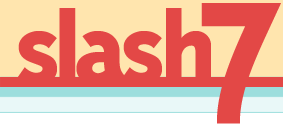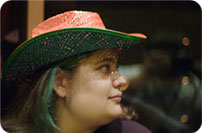Feeling the current, or being swept away?
A good in-depth article on information hoarding:
Linder argues that as we become squeezed for consumption time, we’ll consume more expensive things over cheaper things when possible to make use of more goods on a total-cost basis. But when the cost of goods is zero, what happens then? As behavioral economists (most vociferously, Dan Ariely) have pointed out, we find the promise of free things hard to resist (even when a little thinking reveals that the free-ness is illusory). So when with very little effort we can accumulate massive amounts of “free” stuff from various places on the internet, we can easily end up with 46 days (and counting) worth of unplayed music on a hard drive. We end up with a permanent 1,000+ unread posts in our RSS reader, and a lingering, unshakable feeling that we’ll never catch up, never be truly informed, never feel comfortable with what we’ve managed to take in, which is always in the process of being undermined by the free information feeds we’ve set up for ourselves. We end up haunted by the potential of the free stuff we accumulate, and our enjoyment of any of it becomes severely impinged.
Linder being the author of The Harried Leisure Class, apparently. A book I haven’t read and probably won’t.
There’s also this rather insightful essay by Nicholas Carr. Which I did read through to the end, finding myself agreeing with him, at least on the effects of too much information on my own person. (Whether Google’s 20% time is engineered purposefully for evil is another question. I hear from many “Googlers” that it’s 20% after your requisite 80-hour week, and David Hansson recently pointed out that it’s supposed to be 20% more time doing the exact same things only with a different name, and that getting away from the computer sometimes might be a good idea.)
There is this counterpoint, if you can call it that, by John Batelle but I found it a little too “rah rah INFORMATION AGE!” for my liking.








To me, Nicholas Carr’s piece just seemed like another re-run of "TV is destroying our brains!" updated and revised for a new medium and a new century.
What’s strange is he writes two very good paragraph that recognise the way that new information media are always treated with suspicion, and accepts that this has generally turned out to be simple conservatism and a failure to see new possibilities. Then he just carries on with his argument as though anticipating objections is enough to inoculate against them.
I recognise the feeling people describe as they’re faced with backlogs of e-mails, RSS feeds and downloads all demanding their attention. I was educated and grew up before the internet age, and my first attack of angst about information overload was in front of the bookshelves at the local library. So much interesting stuff in so many fields, and just no time in which to read about them all. Like existential dread, it’s a problem without a solution. All you can do is take a deep breath and move on with life.
I agree entirely with Mark. Information overload isn’t new. Those of us who grew up as rats de bibliothèque know all too well the simultaneous torture and delight of walking into a room full of information we’d love to cram into our heads. The thing that distinguishes the internet from a more traditional library, of course, is that the rubbish ratio is way higher, yet the barriers to seeking out that information are much lower. And thus, like rats pulling levers for randomly delivered pellets of food, we keep clicking away all day, in the desperate hope that the ultimate fix is just one click away.
Thanks, Amy, for mentioning The Harried Leisure Class. I’m reading it now, and it’s delightful. It’s basically a nearly three-decade, point-by-point, precursor to The Four-hour Workweek, and certainly more articulately and thoughtfully written.